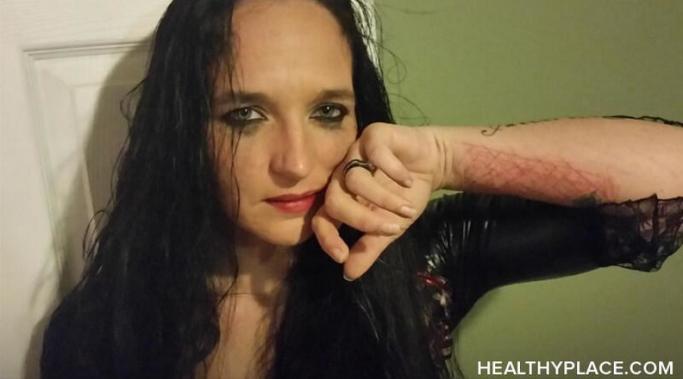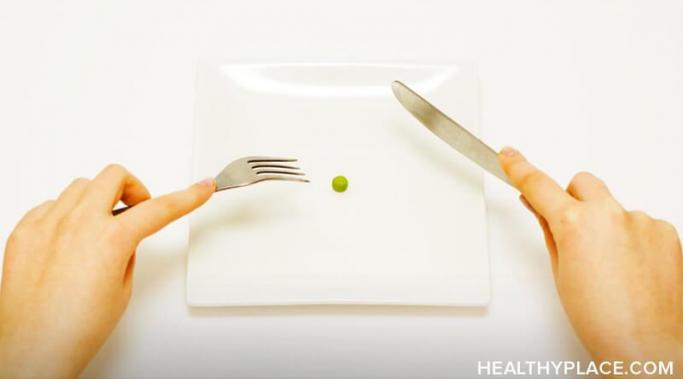Blogs
One of the symptoms of borderline personality disorder is difficulty controlling impulses. Needless to say, this can sometimes lead to disastrous consequences for actions that make sense only to us. Last night, for example, as I looked out my second-story window, I saw a dumpster full of construction debris and felt an inexplicable urge to jump just to see what would happen.
Thankfully I didn't, but impulsive, potentially self-damaging behavior can be a problem for people with borderline personality disorder.
Most of the comments I get on this blog come from other parents like me--parents who are raising a child (or children) who have bipolar disorder, ADHD or another psychiatric diagnosis. Occasionally, however, I get a comment from a troll who wants to blast me for being a bad parent, drugging my bipolar kid into a state of submission, and throwing myself a pity party in the process. Why do I even read them? Why do I feed into their negativity?
Because deep down, I want them to be right.
Not long ago a commenter angrily stated he wanted double-blind, placebo-controlled studies for electroconvulsive therapy (ECT) conducted by an uninterested party. Myself, being diplomatic, I didn't say much to that, but really,
You've Got to Be Kidding Me.
This person clearly has not thought through the ethics involved.
m borderline personality disorder.
One of the things that makes Dissociative Identity Disorder so difficult to recognize is that, contrary to popular belief, DID symptoms are not the stuff of science fiction. They are, in fact, severe amplifications of normal human experiences. I can think of nothing more normal, nothing more intrinsically human than identity confusion. Of the five primary manifestations of dissociation, I believe identity confusion is easily the most common. But it's also the one few people will acknowledge in any meaningful way. People are pretty dedicated to the idea that we should know who we are without question, and we fervently admire those who appear most convincingly to do exactly that. But despite appearances, no one gets to live a human life without struggling with their sense of self.
The whirling emotions of the day I left continued into the next months. I continued to hold on to the positive feelings and thoughts with the help of my sister, mother and friends. Without them, I wonder if I would have succumbed to begging forgiveness from Will, begging him to come home, knowing I'd only find myself worse off in the long term.
Addiction is a strange thing. No one sets out to become addicted, whether it is to cigarettes, prescription medications, alcohol or any other substance. My father had been an alcoholic and he had made our lives a living hell. I never wanted to see myself in that light.
Then I developed anorexia nervosa. At first, I didn't think of it as an illness of addiction. My husband and I argued about it one night several years ago. I had again started the cycle — restrict, starve, purge with laxatives as needed, and repeat every day.
"You're addicted to starving," he said.
"Anorexia isn't addiction. Anorexia is totally different," I argued. "If you would read some books or something . . . You don't know what you're talking about, you don't understand at all."
"I did read that one book, and anorexia is an addiction. Just like alcoholism."
Many people commented on the article I wrote about what a loved one can say to someone who has attempted suicide. One thing is clear from all the outreach - many people have attempted suicide and many people have survived. No one in this situation is alone.
But after a suicide attempt people invariably feel alone. They feel like a freak. They feel hurt and afraid. And when other people deny their suicide attempt, deny their pain, deny their mental illness, this makes things worse, not better.
Denial is keeping your loved one from getting better.
I called this blog debunking addiction because I wanted to debunk the myths surrounding addiction, as well as continue the work to de-stigmatize these struggles. Betty Ford epitomized this mission. Besides being a First Lady, she worked tirelessly to lessen the stigma attached to addictions, as well as fight for women’s health issues. She has been a voice in all of her struggles, whether with substance dependence and de-stigmatizing seeking professional treatment, or with breast cancer and the importance of mammograms. She was a beloved activist even before she became a First Lady, and continued to be admired and loved until her death, and her legacy will continue to live on.
Just when I think I'm healing along nicely, POW - an insightful Facebook friend raises an important question: Am I engaging in self-blame? Um...yes. Self-blame (and self-punishment) comprise a large portion of the answer to the question "Why do you stay in that abusive relationship?!" But I thought I was beyond self-blame. I can (now) laugh at my ex's nasty comments instead of wonder how I managed to cause him to say them. Isn't that a sign that I no longer blame myself for his behavior?








